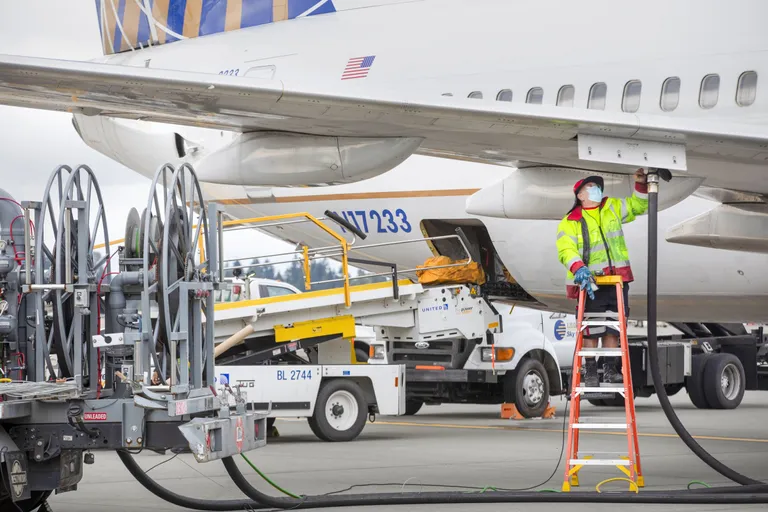A letter to the Washington delegation of State and Federal electeds around Sea-Tac Airport concerning aviation biofuel commonly referred to as Sustainable Aviation Fuel or SAF.
Senator Cantwell,
Senator Murray,
Representative Smith,
Representative Orwall,
Representative Gregerson,
Senator Keiser,
March 29, 2023
On behalf of SeaTacNoise.Info, I write you today to urge you to suspend (or at the very least highly modify) your support for Sustainable Aviation Fuel (SAF); for the good of the Airport Communities, the US Economy, and the planet writ large.
Perhaps some of you are old enough to remember the hype around Ethanol forty years ago? It was touted as ‘green’ and the nation spent an awful lot of money installing all those pumps. But the only green thing about it turned out to be the price supports it offered to a very small set of farmers. And frankly, SAF is Ethanol REV2.0
As with ethanol, almost all fuels made from plants end up being worse for the environment than fuel made from dinosaurs. Biofuels generate just as much C02 as good old kerosene. And when one factors in the cost to grow biomass and purify the final product so that it burns (marginally) cleaner, it ends up creating a net loss, both in terms of economics and externalities. It is, like Ethanol, a very expensive opportunity to appear like one is doing something meaningful. However doing something ineffective, which wastes such large sums of public money is unconscionable.
I mentioned the word ‘grow’ and that is the one caveat to our plea.
We acknowledge one limited use case where SAF might make sense, and is indeed, in aviation. Hurray! 
And the final benefit of waste-derived biofuels is that there will only be so much in any given year. Having a ceiling on availability will nudge stakeholders to seek out better alternatives.
However, growing any commercial crops for the purpose of generating fuel is always a net loss, both for the environment and the economy. Doing so simply enables ‘business as usual’ in the aviation industry. Instead of creating the incentives necessary to boost alternative modes of travel, grown biofuels would prevent the market from doing its job.
You’ve all provided important help to the Airport Communities. No one in the State of Washington, or indeed the United States, have done more to further progress on any number of issues to help impacted communities like those around Sea-Tac Airport. We appreciate it and we support your sincere efforts on our behalf. We also understand the profound challenges in de-carbonizing the aviation industry–and your strong desire to do something about it.
But to put it candidly, SAF as it is currently proposed is greenwashing, pure and simple, and there is no gentler way to say it.
Therefore, we ask you to withdraw your support for any government subsidies of SAF and insist that the DOE, EPA and FAA collaborate on a standard that limits bio-fuels to those derived from waste products as described above.
Additionally, we urge all of you to use your experience and influence to speed the deployment of other, legitimate technologies to de-carbonize commercial aviation as soon as possible.
Finally, we insist that you focus more funding and attention on the immediate needs of our community members. For every dollar that gets spent on grand designs like SAF or H2, set aside at least a few pennies for impact fees to help people living here and now.
Sincerely,
—JC Harris (on behalf of SeaTacNoise.Info)
